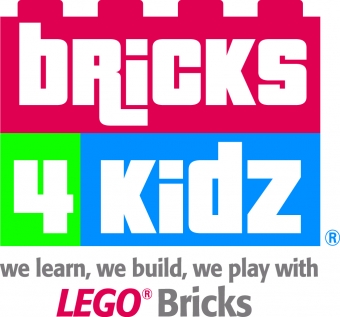- Education Topics
- Achievement Gap
- Alternative Education
- American Education Awards
- Assessment & Evaluation
- Education during COVID-19
- Education Economics
- Education Environment
- Education in the United States during COVID-19
- Education Issues
- Education Policy
- Education Psychology
- Education Scandals and Controversies
- Education Reform
- Education Theory
- Education Worldwide
- Educational Leadership
- Educational Philosophy
- Educational Research
- Educational Technology
- Federal Education Legislation
- Higher Education Worldwide
- Homeless Education
- Homeschooling in the United States
- Migrant Education
- Neglected/Deliquent Students
- Pedagogy
- Sociology of Education
- Special Needs
- National Directories
- After School Programs
- Alternative Schools
- The Arts
- At-Risk Students
- Camps
- Camp Services
- Colleges & Universities
- Counties
- Driving Schools
- Educational Businesses
- Financial Aid
- Higher Education
- International Programs
- Jewish Community Centers
- K-12 Schools
- Language Studies
- Libraries
- Organizations
- Preschools
- Professional Development
- Prom Services
- School Assemblies
- School Districts
- School Field Trips
- School Health
- School Supplies
- School Travel
- School Vendors
- Schools Worldwide
- Special Education
- Special Needs
- Study Abroad
- Teaching Abroad
- Volunteer Programs
- Youth Sports
- For Schools
- Academic Standards
- Assembly Programs
- Blue Ribbon Schools Program
- Educational Accreditation
- Educational Television Channels
- Education in the United States
- History of Education in the United States
- Reading Education in the U.S.
- School Grades
- School Meal Programs
- School Types
- School Uniforms
- Special Education in the United States
- Systems of Formal Education
- U.S. Education Legislation
- For Teachers
- Academic Dishonesty
- Childcare State Licensing Requirements
- Classroom Management
- Education Subjects
- Educational Practices
- Interdisciplinary Teaching
- Job and Interview Tips
- Lesson Plans | Grades
- Professional Development
- State Curriculum Standards
- Substitute Teaching
- Teacher Salary
- Teacher Training Programs
- Teaching Methods
- Training and Certification
- For Students
- Academic Competitions
- Admissions Testing
- At-Risk Students
- Career Planning
- College Admissions
- Drivers License
- Educational Programs
- Educational Television
- High School Dropouts
- Higher Education
- School Health
- Senior Proms
- Sex Education
- Standardized Testing
- Student Financial Aid
- Student Television Stations
- Summer Learning Loss
Bricks 4 Kidz TriValley

Basic Information
Address: 2010 Rockville Rd., FairField, CA 94534
Email: sstudebaker@bricks4kidz.com
Phone Number: 925-595-3934
Additional Information
Focus: S.T.E.A.M. based Education using Lego® Bricks
Director: Scott Studebaker
Schools Served: Arroyo Seco
Walt Disney Elementary School
The Growing Room - Tassajara Hills Elementary School and Neil Armstrong Elementary School
The Growing Room Academy
School District: San Ramon, Livermore, Pleasanton, Dublin
County: CA
Schedule: See website
Ages: 3 - 13
Capacity: See website
Membership/Pricing: See website
Setting:
Classroom
History:
Bricks 4 Kidz classes provide an extraordinary atmosphere for children, where we learn, we build, we play… with LEGO® Bricks. Programs are built around our proprietary model plans, designed by engineers and architects, with exciting themes such as space, construction, and amusement parks. Our specially designed project kits and theme-based models provide the building blocks for the Bricks 4 Kidz approach to educational play. At Bricks 4 Kidz, we believe that kids learn best through activities that engage their curiosity and creativity.
GOALS
Introduce engineering and architecture principles
Explore math and science concepts
Increase general knowledge through discussions related to each model
Develop social/emotional skills such as patience, teamwork and communication in the process of completing a project
Enhance self-esteem by solving problems and completing projects
Improve fine-motor skills as children manipulate small components
Utilize multiple learning modalities to engage visual, kinesthetic and auditory learning styles
Teach important classroom skills such as organization and following directions
Foster an appreciation for how things work
Our programs provide a safe, relaxed learning environment where initiative is invited and self-expression is celebrated. Model building provides opportunities for problem-solving and helps kids develop an appreciation for how things work. All this takes place while kids are having fun and socializing in a non-competitive atmosphere.
Program Highlights:
We offer activities for children ages 3-13+, including:
After-school enrichment classes
Week-long summer camps
Birthday parties
Preschool classes
Kidz Night Out
Activities:
We offer activities for children ages 3-13+, including:
After-school enrichment classes
Week-long summer camps
Birthday parties
Preschool classes
Kidz Night Out
Field Trip Destinations: In-School Field Trips
Slogan: We Learn, We Build, We Play with Lego® Bricks





